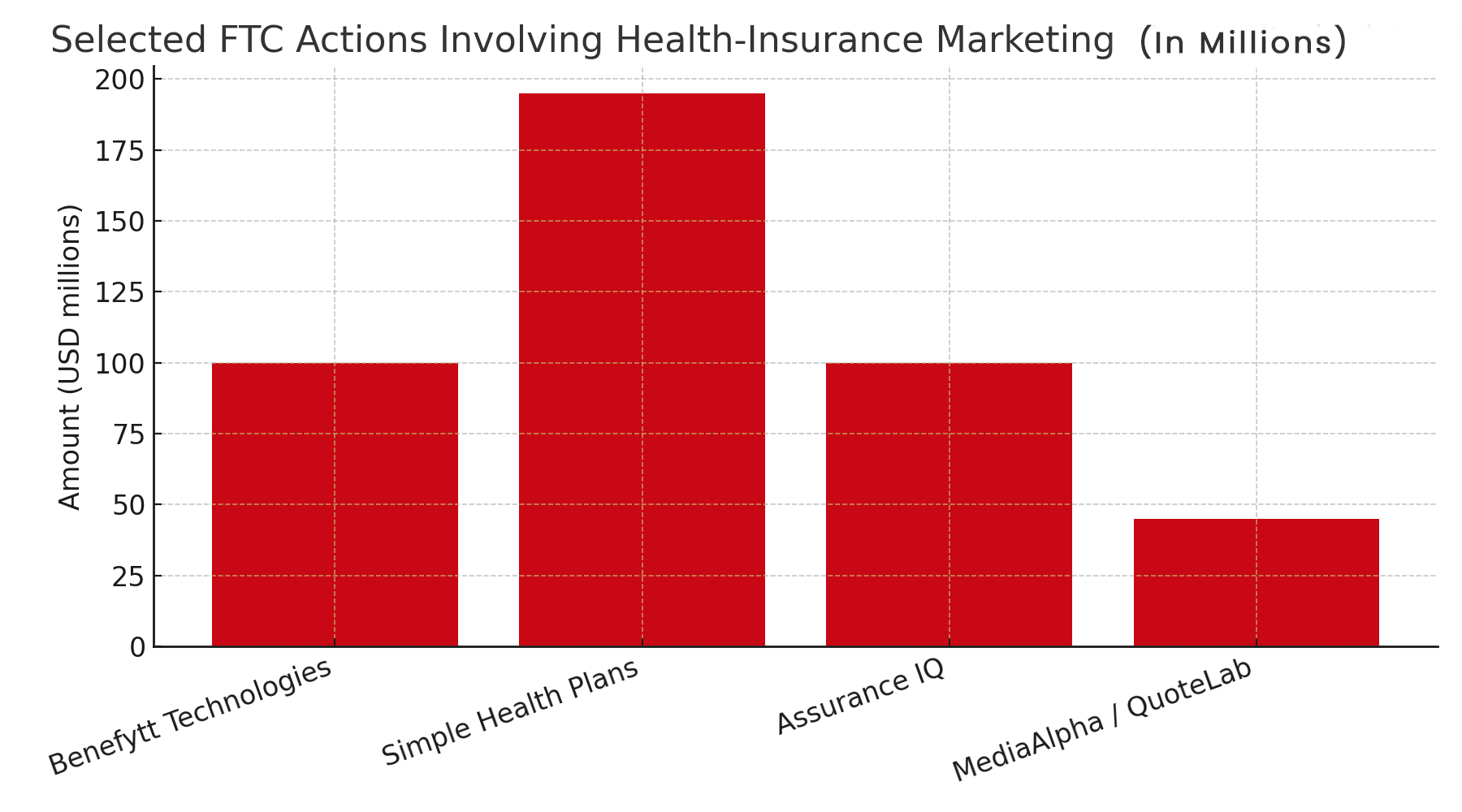FTC Slaps MediaAlpha with $45M Settlement: A Wake-Up Call for Insurance Marketing
On August 7, 2025, the Federal Trade Commission (FTC) announced a $45 million settlement with MediaAlpha, Inc. and its subsidiary QuoteLab, LLC. The case zeroes in on deceptive lead generation practices tied to health insurance products—practices that, frankly, “poison the well” for the entire industry.
At its core, the complaint accuses MediaAlpha of harvesting sensitive consumer data under the guise of offering health insurance quotes, only to auction that information off to third-party telemarketers. Many of these telemarketers went on to make illegal robocalls, some even targeting individuals who had placed their numbers on the National Do Not Call Registry.
A Pattern of Deception
The FTC laid out a long list of abuses. Among them:
-
Misleading consumers with websites that appeared to be affiliated with the government.
-
Using videos of U.S. Presidents and other imagery to imply official endorsement.
-
Deploying actors and scripted testimonials to sell plans MediaAlpha didn’t actually offer.
-
Facilitating millions of unsolicited calls, including robocalls without consent.
“When one company cuts corners and manipulates consumers, we all pay the price. It erodes trust not just in that company, but in the entire marketplace.”
This wasn’t a case of oversight—it was a calculated strategy. The FTC’s findings suggest MediaAlpha either knew or willfully ignored how its lead buyers were exploiting consumer data.
Why This Matters for the Insurance Industry
Lead generation is a lifeblood of the insurance business. Done ethically, it connects consumers to coverage they need. Done deceptively, it creates reputational risk for the whole sector.
The MediaAlpha case highlights a hard truth: every time a consumer feels tricked, it makes them more hesitant to trust any insurance provider or agent.
“Greed-driven lead generators don’t just harm consumers—they damage the very foundation of our industry.”
When one bad actor exploits vulnerable people, it hands regulators and consumer advocates a reason to push for stricter oversight. That means even honest firms can end up tangled in more compliance costs and scrutiny.
Lessons for Carriers and Marketers
So what can insurers and agencies take away from this? At a high level, three things stand out:
-
Transparency is non-negotiable. Consumers need to know how their data is being used.
-
Consent must be real. Pre-checked boxes and buried disclaimers won’t cut it.
-
Lead buyers need accountability. If your partners are using shady tactics, regulators won’t stop at them—they’ll look at you, too.
Looking Ahead
The FTC made clear that deceptive online lead generation isn’t just a minor compliance issue—it’s a top enforcement priority. For the insurance industry, this should serve as both a warning and a call to action.
The path forward? Invest in transparent marketing, audit your lead vendors, and remember that every interaction with a consumer shapes not just your reputation, but the reputation of the industry as a whole.
Because at the end of the day, a $45 million fine isn’t just MediaAlpha’s problem—it’s a flashing red warning light for all of us.


